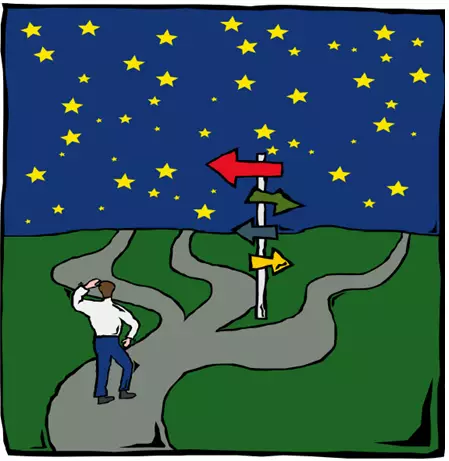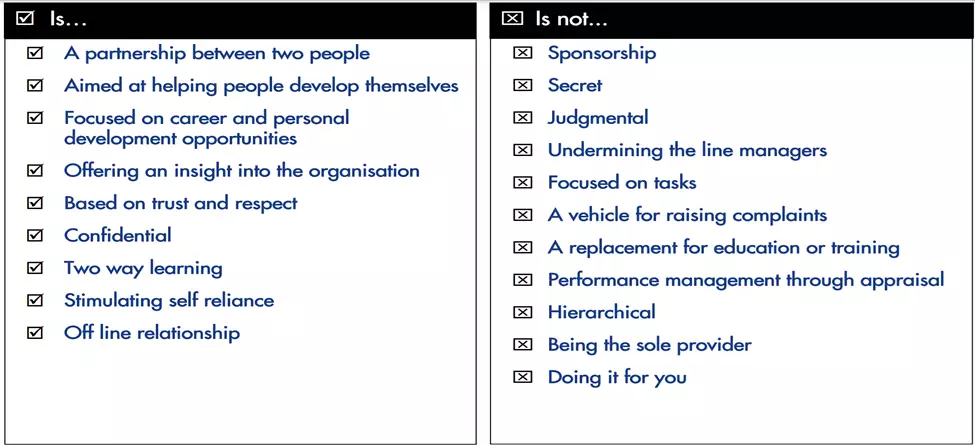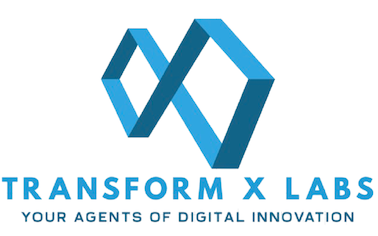- “Mentorship and Career Development in the GCC: A Conversation with Samer”Samer’s mentoring experience and MA in Organization Psychology from Columbia University make him an excellent resource for discussing mentorship and career development in the GCC region.
In the dynamic and rapidly evolving business landscape in the GCC, mentorship plays a pivotal role in nurturing talent and fostering career development. As organizations strive to remain competitive and agile in a rapidly evolving landscape, the importance of mentorship in guiding professionals through their career journeys cannot be overstated. Mentorship not only provides individuals with valuable insights and guidance but also helps in developing crucial skills, expanding networks, and navigating the complexities of the workplace whilst retaining core talent. I would argue that within the GCC, careers are made or stunted through relationships and an individual’s ability to cultivate them as traditional values are deeply rooted in the fabric of society, so mentorship serves as a bridge between experience and ambition, helping individuals unlock their full potential and contribute meaningfully to their organizations and communities. To this day and throughout my life, I have personally benefited from mentors across multiple facets of life that span both personal and professional that I am passionate about: HR, Real Estate, and Bitcoin. I have also mentored and continue to mentor professionals across these three facets across the GCC. And in both capacities, the experience has been rewarding to all parties…

Did you know that the term Mentor came from Greek mythology? Odysseus, King of Ithaca (Homer’s Odyssey, 800BC) was about to leave for the Trojan War and was reluctant to leave his son, Telemachus. When he did set off, Odysseus assigned his trusted companion and friend, Mentor, in charge of the royal household. One of his tasks was to raise the king’s son and make him a wise and good ruler.
SO, WHAT IS MENTORING?
A Partnership
Between two people built upon trust. Oxford dictionary defines mentor as “an experienced and trusted advisor.”
Confidential
The mentor offers a safe environment to the mentee to discuss work-related issues and explore solutions to challenges.
Off-line
Mentors are typically outside the mentee’s immediate team, and not in their reporting line. This facilitates confidentiality as well as offering the mentee a fresh perspective in discussions.
Positive Developmental Activity
The primary focus is the less tangible skills which enable individuals to operate effectively as leaders and
achievers. Mentors can offer insights into the ways the organization works, how the informal networks operate and how they think about the challenges and opportunities mentees encounter.
But it is important to note that the mentees need to take ownership of their careers and provide the main drive behind the relationship to help set the direction to meet their development needs.
Self-reliance
This is the aim of mentoring. Mentors are not there to sort out problems but rather to highlight the issues and to help plan ways through them. Through skillful questioning, they help clarify the mentee’s perspective while bringing, an additional view to bear on the issues.
Understanding And Trust
Sharing views and ideas builds this. Both mentors and mentees share a common benefit of developing a
strong two-way learning relationship.
THE MENTOR’S ROLE
No two mentoring relationships are alike. Yet the mentor’s role is consistent. Since the aim of mentoring is to build the capability of the individual, mentors should respond to their needs in a way that enables them to find their own solutions.
Mentors are offering themselves as a resource to the mentees. Here are some of the resources most mentors will be able to offer:
Organizational Experience: understanding of the culture of the organization – its values, its
processes, its politics and the strategies required to negotiate them.
Knowledge of People: experience of working with and handling people in general, perhaps
understanding of specific people with whom the mentee is interacting.
Knowledge of Networks: knowledge of networks that exist within the organization and of
networks that the mentee might need to relate to or develop for themselves.
Knowledge of Career Options: understanding of career paths and options within the organization and
how these are likely to develop in the future, plus possible direct experience of areas of work which are of interest to the person being mentored.
Life Experience: experience accumulated through the mentor’s own life of personal issues that are or are likely to be of use to the person being mentored.
Technical expertise: job-related expertise – this might be technological or managerial. It is expertise that the mentee might find useful in their current or future roles.
This is not a definitive list. Nor should anyone feel that they have to provide all of the above, they are not
prerequisites. The list is intended as a stimulus to help mentors reflect on their own resources and to consider which of these they want to make available to the people they are mentoring. But remember, good mentors keep out of the action – they look on, encouraging rather than taking over and doing the work. Mentors play the role of the objective supporter and provide a confidential sounding board.
An effective mentor:
- is a good listener.
- is actively interested in the individual and their development.
- trusts others and can be trusted.
- is encouraging and exhibits confidence in the individual.
- is able to maintain the integrity of the relationship between the mentee and their manager.

THE MENTEE’S ROLE
Mentoring is designed primarily to benefit the mentee. However, what each person gets from the relationship will depend significantly on what they put into it. By accepting the role, the mentee assumes responsibility for driving the relationship. It is their responsibility to establish the goals and to manage the process to further their personal and professional growth.
In entering a mentoring relationship, mentees should:
know what they want to achieve from the relationship clarify what is expected of them and what their expectations are of the mentor set realistic aims for what can be achieved through the learning partnership be committed to their own development.
The effective mentee will:
- Take responsibility for driving their own development.
- Initiate the mentoring meetings and take an active role in the mentoring discussions.
- Bring real situations, issues, development needs to the mentoring meetings.
- Share experiences openly, think for themselves, challenge intelligently.
- Be prepared to receive honest feedback.
- Implement agreed actions and update the mentor on progress.
- Complete a six-monthly review of the mentoring meetings.
THE MENTORING PROCESS
Mentoring is about helping people progress their development. A mentoring relationship does not stand still. Most go through the following stages:
Building rapport getting to know each other and agreeing the basis for working together.
Setting direction what are the issues to be tackled, what are the priorities?
Making progress the action part with regular contact and activity.
Moving on when the purpose of the partnership has been achieved.
I have personally developed and launched mentorship programs across multiple organizations in the GCC and the below are guidelines that I have used to establish this culture of mentorship and career development to help new recruits effectively integrate within the organization. During the interview process, many shrewd candidates will ask if the organization has a formal mentorship program to gauge whether the organization values a culture of mentorship and career development. So if you an an HR manager considering implementing a mentorship program as part of your career development framework here are some guidelines you can leverage and build upon:
Mentoring Guidelines
- Overview
The objective of these guidelines is to provide a framework for mentoring within the organization. The guidance is built on the principles of ‘light touch’, simplification and using existing tools, processes and resources aligned with the organization including clarification of roles and responsibilities as it pertains to mentoring within the organization.
The organization recognises that although both mentoring & coaching have a role to play in the development of others, there are distinct differences between the two, some of which are highlighted below. For the purposes of this article, I shall refer to mentoring only.
Coaching |
Mentoring |
| Short-term process focused on equipping people with tools, knowledge and practices to develop themselves and become more effective. | Medium to long-term process to learn from the experience of a successful professional in the field. |
| Increase and stretch individual skills, competence, confidence and performance through feedback and focused conversations. | Gain knowledge and understanding of the wider system in the organization. |
| Ensure alignment between individual actions and business goals. | Learn how to navigate the organisational system and expand networks of influence. |
- Guiding principles
The organization will adopt these guidelines and identify individuals to be offered the opportunity to have a mentor. The intent is not to be prescriptive on who may have a mentor or that people identified in the targeted groups must have a mentor, however it is important, from a fairness and consistency perspective, that the application of the tools, and providing the opportunity to the targeted groups, is aligned across the organization.
- Mentoring within the organization
- The definition of Mentoring – “Mentoring is a long-term relationship, aimed at helping people develop themselves and their career”.
- Current Position
The use of mentoring, as a development tool, is not yet institutionalized across the organization businesses and functions. Increasingly, the benefits of using mentoring to support staff development are being more widely recognised – particularly for graduates, experienced hires, specific talent groups, and employee networking groups.
There are differing needs across the businesses and functions and therefore one solution will not necessarily fit all. In addition, within the HR model, accountability for mentoring is typically split in different ways between Talent Management and Learning & Development.
- Methods currently available
- Professional / Skill Pool / One-to-One Mentoring:
A mentoring relationship with the objective of providing a technical/professional perspective on career and personal development.
- Employee groups currently deemed as a ‘priority’ for mentoring within the organization:
- ‘Diverse’ populations (as defined by the organization’s Diversity & Inclusion plan) e.g.
- Females with High Potential
- Nationals with High Potential
- New hires (on boarding)
- Graduates in the formal Graduate Development Training Program
- Experienced hires
- High potential Employees
- Professional Development
- Certain skill pools that require professional mentoring
- Roles and Responsibilities
- HRBPs
- Ensure that individuals in the targeted groups of ‘diverse’ populations & ‘Talent / High Potentials’ are offered the opportunity of a mentoring relationship.
- Informs Talent focal point in talent team if they are aware of individuals who require a mentor outside of their own coverage population.
- Ensure that their coverage population understands and are using the organization’s mentoring tools.
- Talent focal point
- Provides matching assistance where required across other parts of the organization.
- Ownership of relevant updates of mentoring guidelines and changes to the organization tools and communication.
- Line Manager / Supervisor
- Plays a key role in providing day to day / short term coaching to direct line reports. This includes but is not limited to:
- Ensuring every individual has an up-to-date IDP in place.
- Ensuring that job content is stretching & relevant.
- Ensuring that on the job/ departmental development opportunities are being utilized in line with IDPs.
- Understands the organization mentoring guidelines and ensures that individuals within the target groups in their teams are:
- Aware of the guidelines and
- Have the opportunity for a mentoring relationship.
- Individual (Mentee)
- Make Line Manager / Supervisor or HR aware if he/she does not have a mentor.
- Assumes responsibility for driving the relationship including seeking out suitable mentors, establishing the goals, managing the process etc.
- Assumptions
- There is no tracking or measuring of the mentoring program.
- All employees have the capability to be a mentor. Standard HR mentoring guidelines remain available to provide mentors with suitable guidelines and training.
- IDPs are used to help ensure the best relationship match (i.e., Areas for Development matches to Mentor’s skills/ experience etc.).
- Mentors may say ‘no’ if they are too busy.
- Mentors should have a maximum of 4 mentees.
- All employees may attempt to find a mentor; the target groups simply give guidance to HR and business to enable prioritization.
- Mentors
To ensure that the organization is able to stay aligned with the principles of ‘light touch’, avoid a tracking and monitoring system, mentors should be selected or assumed on the following criteria:
- Front Line Leader or Higher
- High Potential
- At least 3 years of experience within the organization
- Preferably linked to the job family of the mentee
- No hierarchical line to the mentee
